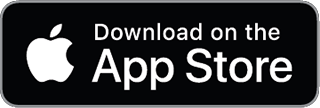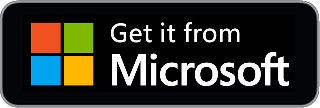What are the Disadvantages of RSS?
While RSS (Really Simple Syndication) has revolutionized the way we consume online content by offering a streamlined and efficient method to stay updated, it's not without its drawbacks. From potential content limitations to the challenge of managing an overflowing feed, RSS has certain aspects that might not appeal to every user. This article delves deep into the disadvantages of RSS, offering a balanced perspective on its place in the digital landscape.
The Challenge of Overconsumption
One of the primary attractions of RSS is its ability to aggregate content from multiple sources into a single feed. However, this strength can quickly turn into a weakness. Subscribing to numerous feeds can lead to information overload, where the sheer volume of updates becomes overwhelming, making it challenging to discern valuable content from the noise.
Potential Content Limitations
Not all content is best consumed via RSS. Some websites offer only truncated feeds, providing just a snippet or summary of the content. This means users often have to click through to the original site to read the full article or post, somewhat defeating the purpose of a consolidated feed. Additionally, certain multimedia elements or interactive features might not display correctly or at all within some RSS readers.
Loss of Website Experience
Websites are often carefully designed to offer a unique user experience, complete with branding, layout, and interactive elements. Relying solely on an RSS reader can strip away this experience, reducing rich content to plain text and images. Users might miss out on the ambiance, mood, and additional context a website's design and interface provide.
Not Universally Adopted
While many websites and platforms support RSS, it's not a universal standard. Some sites, especially newer platforms or those that rely heavily on user interaction, might not offer RSS feeds. This means users can't rely solely on RSS for all their content needs and might have to resort to manual checks or other methods for certain sites.
Privacy Concerns
While RSS itself is a relatively secure way to consume content, the act of subscribing to feeds can sometimes expose a user's interests and reading habits. If not managed correctly, or if the RSS reader platform itself isn't secure, there's potential for data leaks or privacy breaches.
In Conclusion
RSS, with its promise of streamlined content consumption, undeniably has a place in the toolkit of the modern internet user. However, being aware of its limitations ensures a more informed and balanced approach to its use. As the digital landscape becomes increasingly cluttered, tools like the Feed Viewer app emerge as essential aids in navigating this vast expanse. Feed Viewer stands out as a beacon in the realm of RSS readers. It's meticulously designed to pick valuable content from the noise, ensuring users receive only the most relevant updates. Unlike some platforms that truncate or merely provide summaries, Feed Viewer delivers content in its entirety, ensuring users don't miss out on crucial details. The app also excels in presenting rich content, including vibrant images and multimedia elements, preserving the essence of the original source. Furthermore, in an age where data privacy is paramount, Feed Viewer prioritizes user security. The app is engineered to be secure, ensuring that users' interests and reading habits remain private. There's no compromise on data integrity, and users can consume content with the peace of mind that their preferences are not being tracked or leaked. In essence, while RSS has its set of challenges, with the right tool in hand, these can be effectively addressed. Feed Viewer offers a refined RSS experience, ensuring you get the best of both worlds. Dive into RSS with Feed Viewer, and navigate the vast digital ocean with clarity, security, and purpose.

